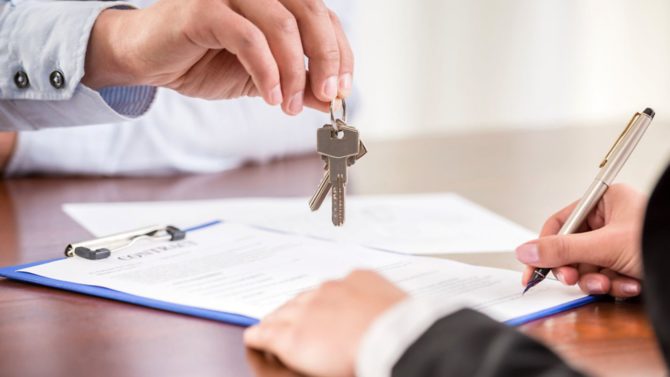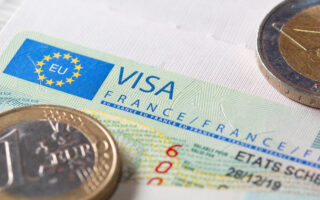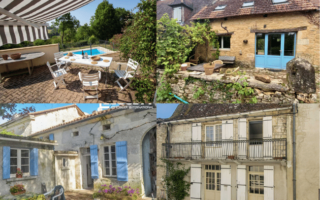The timeline of a French property purchase explained

The legal timeline for property transactions in France is quite different to the UK – learn the different stages of a French property purchase so you know what to expect
Written by François Proost of the Conseil Supérieur du Notariat
Your notaire is your first point of call when buying a French property, as they are the only profession in France who are allowed to deal with the transfer of property from one owner to another. They carry out a number of legal and tax checks, which enables them to address any difficulties in the process.
Stage 1: the documentation
Once you have found the property you want to buy, you will be asked to provide several documents including your passport, your civil status (first and last names, birth certificate, marital status etc), and any papers relating to the financing of the purchase (such as a mortgage offer). If part of the financing will come from a property you are intending to sell, you will be required to provide your title to the property and the signed pending sales agreement.
The notaire will carry out certain formalities, including:
• Checking the civil status of the parties (both vendors and buyers) by requesting birth certificates
• Obtaining the title deed: the seller provides the deed of the property for sale to the notaire who verifies its validity along with the diagnostic tests (reports on lead, gas, termites, natural risks, energy efficiency etc)
• Financing: the notaire will check how the purchase will be financed, either through a loan or personal funding. The buyer must negotiate the terms of the loan or mortgage before signing the preliminary contract, and is legally bound to the sale as soon as the lending institution sends an offer.
_______________________________________________________________________
Don’t miss
5 things you need to know before buying a French property
Where you can buy a property in France for under €100,000
_______________________________________________________________________
Stage 2: signing the preliminary contract
Before the final deed (acte de vente or acte authentique) is signed by all parties in the notaire’s presence, it is normal for the purchaser and seller to sign a preliminary sales contract (usually called the compromis de vente or promesse de vente). This practice is not required legally, but is used almost systematically.
This pre-contract, signed by the seller and the purchaser, specifies the conditions for the future sale and includes the agreement of the parties. Beware! The preliminary contract is indeed a ‘contract’ in the legal sense of the term, which has important obligations for both the seller and the buyer.
The sale may be subject to the fulfillment of suspensive conditions, meaning the sale depends on the occurrence of a future, uncertain event such as gaining planning permission. The most important conditional clause is that relating to obtaining a loan by the purchaser.
Prior to signing this contract, you will need to instruct your bank to transfer the funds for the deposit, usually between 5%-10% of the sale price, to the notaire’s bank account.
Stage 3: Cooling-off period
A 10-day cooling-off period follows the signing of the contract for the buyer only, during which time he/she can pull out of the sale for any reason. (In certain exceptional circumstances, it is possible for the final sale contract – acte authentique – to be signed without having to go through the process of signing a preliminary contract, and still benefit from the 10-day period of reflection.)
_______________________________________________________________________
Don’t miss
Brexit: Will I still be able to buy a property in France?
Common mistakes made by property buyers that you should avoid
_______________________________________________________________________
Stage 4: Sorting your finances
The timeframe between signing the preliminary contract and the final sales contract is determined by the following elements (depending on the response time of some administrations):
• The clearance of all pre-emption rights (usually two months)
• Obtaining your funding. The law reserves for the purchaser of a residential property a minimum period of one month to obtain ‘an offer of a loan’ and they can accept this offer only after a period of reflection of 10 days. It is usual to leave a period of 45 days to get your funding. The only mandatory suspension clause in the preliminary sales contract relates to obtaining a loan.
These timeframes run concurrently, and are not accumulative.
Stage 5: signing the acte de vente
At the signature of the acte authentique, the notaire will calculate the outstanding sale price, including agency and notaire’s fees, and tax implications. These include duties and taxes imposed by the state and local authorities (e.g. registration fees). The notaire collects the taxes and then pays them back to the public treasury. He will also calculate any disbursements and incidental expenses. For the seller, the notaire calculates any capital gains tax payable on the property.
Stage 6: Getting the title deeds
After signing the acte authentique, the deed of sale is published by the notaire at the French land registry. When your title deed, bearing official stamps, is returned to your notaire, they finalise and close the account opened in your name in their office for your purchase. The notaire then sends a copy of the acte authentique to the purchasers.
It generally takes around three months between the signing of the deed of sale and the receipt of the title deed by the notaire.
Like this? You might enjoy:
How do I sell my French property through an estate agent?
Share to: Facebook Twitter LinkedIn Email


